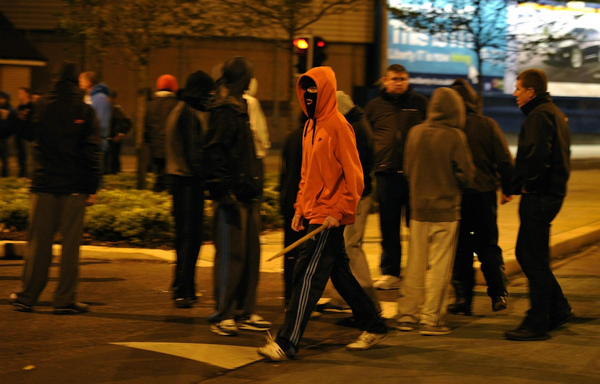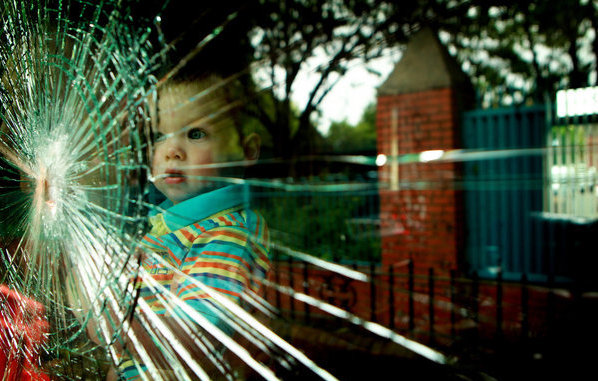Global General
Frustration at peace fuels Belfast rioters
(Agencies)
Updated: 2011-06-23 15:19
 |
Large Medium Small |
|
 A young hooded demonstrator carries a weapon as he patrols a street during a stand-off between loyalist and nationalist demonstrators in east Belfast June 23, 2011. Northern Irish police said on Wednesday they fear rioting in Belfast could escalate to the point where someone gets killed, threatening to upset a delicate peace between Catholics and Protestants in the British-controlled province.[Photo/Agencies] |
BELFAST -- Pro-British paramilitaries blamed for some of the worst riots in Northern Ireland in years feel peace has marginalised them and exposed them to police crack-downs, residents and local politicians said on Wednesday.
A press photographer was shot and wounded on Tuesday evening in the second night of clashes between hundreds of pro-British loyalists and Irish nationalists that police say were initiated by loyalist Ulster Volunteer Force paramilitaries.
Streets were deserted around the Catholic Short Strand enclave road on Wednesday with many windows boarded up in expectation of a third night of rioting.
In the nearby Protestant Newtonards Road, UVF flags flew from lamp-posts alongside posters of the British Queen.
"Protestants in this area feel that they have lost out on the promised dividends from the peace process," said John Kyle, a member of the Belfast council for the Progressive Unionist Party, which has historical links to the UVF.
"They believe they have been ignored by the politicians," he said. "There's also a perception that the loyalist community's fears about attacks on their homes have never been addressed. But the violence is wrong, totally wrong."
Northern Ireland was torn apart during the violent "Troubles" between loyalists, mostly Protestants, who want it to remain part of the United Kingdom, and Irish nationalists, mostly Catholics, who want it to form part of a united Ireland.
|
 A 18-month-old Jude Millen look out from the shattered window of his Godfathers sitting room after a night of serious rioting between hundreds of Catholics and Loyalists in the Short Strand area of the city.[Photo/CFP] |
The peace deal paved the way for a power-sharing government of loyalists and nationalists. Violence has subsided over the years, but there are still dissident armed groups opposed to the deal.
Police have blamed members of the Ulster Volunteer Force (UVF), one of the deadliest pro-British paramilitary groups of Northern Ireland's bloody past, for initiating the riots, though they said they may no longer be in control.
The UVF said two years ago that it had completed the decommissioning of its weapons in line with other militant groups after a 1998 peace agreement mostly ended three decades of violence in the province.
But like nationalists who have split from the defunct Irish Republican Army to form "dissident" paramilitary groups, some loyalists appear keen to maintain their ability to use force.
"The East Belfast UVF want to keep up their gangster activities" said a resident with ties to the UVF, who declined to give his name.
"They are also angry that their past crimes are being investigated with such a vigour by the Historical Enquiries Team," a body established during the peace process to investigate killings between 1968 and 1998.
Both Catholic and Protestant residents are terrified by the sudden descent into street battles a decade after peace ended a vicious spiral of killings. Children as young as 10 have been taking part in the riots, while others stood by and watched.
"It was like hell here on Monday and Tuesday nights," said mother of two Anne Marie Shanks, 44, whose windows and doors on the Protestant Newtonards Road have been smashed by nationalist rioters.
"I had to get my two children - aged 11 and four - out to another house away from the frontline."
Across the large fence that divides the two communities, Catholics fear the situation could get out of control.
"On Tuesday night we heard loyalists shouting that they were going to burn us out," said Shauna O'Hara whose father John was murdered by loyalists 20 years ago. "People just don't know what is going to happen next."
| 分享按钮 |